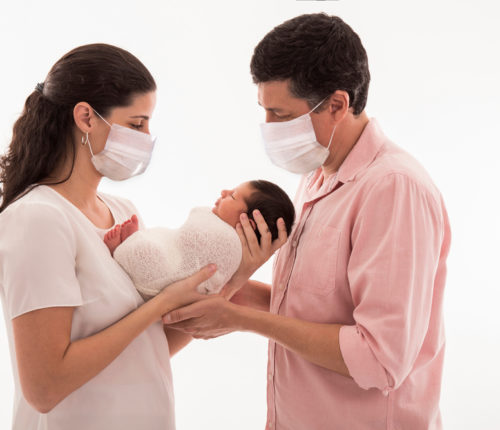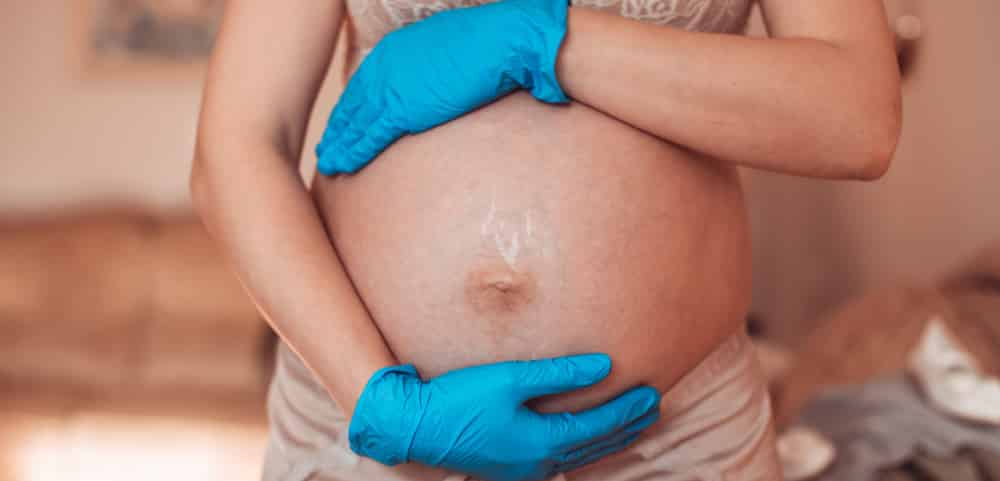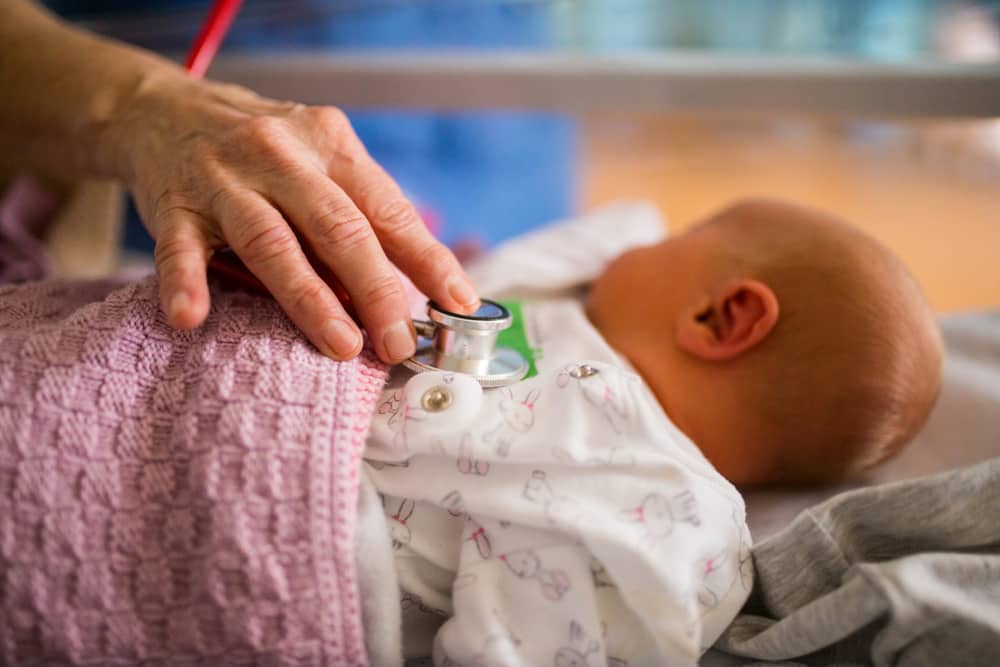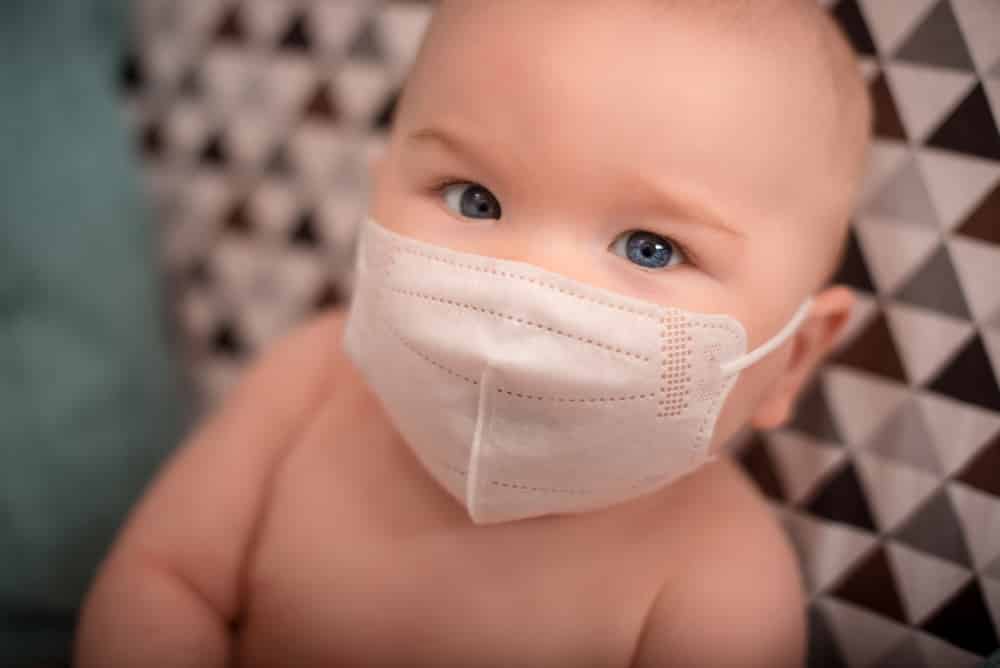
Coronavirus Risk to Infants
The novel coronavirus COVID-19 is changing the way that many families prepare for the birth of a child. Parents have a lot of questions about how the virus could affect pregnancy, labor and delivery and coronavirus risk to infants in the days after birth.
At Birth Injury Guide, we want parents to have as much information as possible to assuage their fears and make the best decisions possible for their families. Our goal is to provide up-to-date information about coronavirus risk to infants and what parents can do to reduce the risk of their child getting sick.
Coronavirus Risk to Infants and Children
According to the Centers for Disease Control and Prevention (CDC), there are fewer reports of coronavirus illness among infants and children than among adults. Generally, the illness COVID-19 is less common in infants and children, and may present milder symptoms. Current data from the CDC shows the following:
- Two percent of U.S. COVID-19 cases are among patients 18 years old or younger.
- In China, 2.2 percent of COVID-19 cases are among patients under 19.
- 1.2 percent of COVID-19 cases in Italy are among patients 18 years old or younger.
- In Spain, less than one percent of COVID-19 cases are among patients under 18.
Coronavirus Disproportionately Affecting Non-White Children
New data suggests that non-white infants and children are disproportionately affected by COVID-19. A memo from the Federal Emergency Management Agency (FEMA) shows that Black and Hispanic children die from COVID-19 more than White children. The ethnicity breakdown is as follows:
- Hispanic – 38%
- Black – 34%
- White – 25%
Among children who have died as a result of COVID-19, 50% are male and 50% are female. However, males under age 18 make up 64% of deaths, compared to 36% of females.
Coronavirus and Pregnancy Risk
According to the CDC, pregnant women are more vulnerable to coronavirus because, in general, pregnant women are more “at risk” for viral respiratory infections. Pregnant women have been found to be higher risk because they have weaker immune systems and their bodies work much harder given they are sharing nutrients.

Unfortunately, the CDC does not know exactly how at risk pregnant women are. There is still a lot that is not known about coronavirus and how it affects certain populations. Women who are pregnant or are planning to become pregnant are urged to attend routine healthcare appointments to ensure their overall health.
Women who are pregnant should know that the potential is there for coronavirus transmission between mothers and unborn babies. Pregnant women who have symptoms of coronavirus should get a test as soon as possible. If you have an infant at home and are breastfeeding, you should also talk to your doctor if you experience symptoms or are diagnosed with coronavirus. It is unknown if coronavirus can be transmitted through breast milk.
Coronavirus Precautions for Infants
Some researchers say that infants and children experience a milder form of coronavirus illness than adults. A study published in Pediatrics says that 90 percent of Chinese children who tested positive for coronavirus had mild symptoms, if any at all. Another study in Singapore found that,
“While most adults with COVID-19 infection have fever, respiratory symptoms and/or chest X-ray changes, current data suggest that the majority of the infected children have mild or no symptoms.”
Even infants and children with SARS-CoV-2 infection (severe acute respiratory syndrome coronavirus 2) may be asymptomatic. In one study, 13 percent of pediatric SARS-CoV-2 patients were asymptomatic. This is dangerous because people without symptoms are not generally tested, but could still spread the virus to others.
The primary source of transmission of coronavirus is patients who exhibit no symptoms. Furthermore, there is no vaccine or treatment for coronavirus and the disease COVID-19. Parents are urged to take precautions to prevent their infant or child from getting sick.
According to the CDC, coronavirus precautions for infants and children include:
- Clean hands frequently with soap and water or hand sanitizer.
- Avoid anyone who is sick, even if they think it is not coronavirus.
- Clean and disinfect household surfaces often.
- Launder infant and children’s linens, plush toys and clothing regularly.
- Limit exposure to other children, including family members outside the home.
- Limit exposure to older adults, especially those with underlying medical conditions.
- Practice social distancing when you are out with your children.
- Children two years old and older should wear a face covering, such as face mask or bandana, when out in public.
- Watch for any signs of illness in your infant or child.
Coronavirus Symptoms in Infants
While infants and children may experience milder symptoms, parents should be aware of the symptoms and possible complications. Generally, the symptoms of coronavirus include:
- Fever
- Cough
- Shortness of breath
- Muscle pain
- Sore throat
- Loss of taste or smell
- Diarrhea
- Headache
In infants and children, it may be difficult to establish exactly which symptoms they have. Any indication of fever with a cough or difficulty breathing is a reason to contact your healthcare provider right away.

If your infant or child tests positive for coronavirus, you should also be mindful of worsening symptoms or complications. Get emergency medical attention for your infant or child if he or she experiences any of the following:
- Inability to keep liquids down
- Confusion
- Inability to awaken
- Difficulty breathing
- Cannot catch his or her breath
- Bluish tint to lips
These are all signs of a medical emergency. Take your child to the nearest emergency room (ER). You may need to call them first to explain the symptoms and tell them if your child has a coronavirus diagnosis. If so, you may have to follow specific instructions for bringing your child in.
Supporting Your Child During the Coronavirus Pandemic
You’ve heard the saying that parents must “wear a lot of hats.” That has never been more accurate than it is now. Many parents are working from home while also homeschooling their children. Some parents are essential workers and are balancing work and home life like never before.
During this time, parents must remember that their children are also affected by the sudden change in routine. Fortunately, there are things parents can do to support their children and promote a happy and healthy home life. The CDC recommends the following:
- Help your child stay active indoors and outdoors.
- Set up video chats for older children with grandparents or friends.
- Have children write letters or draw pictures for grandparents or relatives.
- Talk to your child’s school to see if they offer any online resources for learning games, emotional learning, etc.
- Maintain a home schedule that is easy for your children to follow.
- Make sure infants and children have a stable schedule for bedtime or naptime.
- Provide your children with hands-on activities (puzzles, drawing, painting, blocks, etc.).

Get Legal Support from Birth Injury Guide
If you have questions or concerns about coronavirus risk to infants and children, your first line of support is your healthcare provider(s). However, many people are finding it helpful to speak with a legal professional about their legal rights during this pandemic. The coronavirus pandemic is an unprecedented situation and many families are concerned about their rights as they navigate this complex situation.
If you are pregnant or have a newborn, you may have questions about your rights as you pursue medical care for you or your child. Birth Injury Guide may be able to help. We support parents who have questions or concerns about their infant’s health – from labor and delivery and beyond. Find out if we can help you by calling 1-877-415-6603, or complete the contact form on our website.
Sources:
- https://www.cdc.gov/coronavirus/2019-ncov/hcp/pediatric-hcp.html
- https://www.hopkinsmedicine.org/health/conditions-and-diseases/coronavirus/coronavirus-in-babies-and-children
- https://enterovirus-d68-symptoms.blogspot.com/2020/03/how-healthy-looking-baby-might-spread_59.html
- https://www.cdc.gov/coronavirus/2019-ncov/daily-life-coping/children.html
- https://www.cdc.gov/coronavirus/2019-ncov/need-extra-precautions/pregnancy-breastfeeding.html


